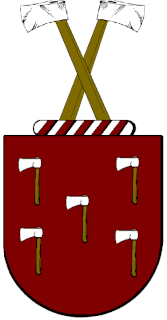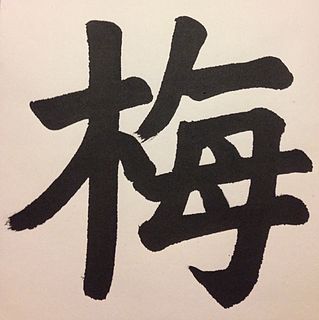See also
- Luick (surname)
- Liège, Belgian city known in the Dutch language as Luik
Luik is an Estonian surname meaning "swan". It may refer to:

Machado is a surname of Portuguese and Spanish origin meaning the word "axe" or "hatchet" dating back to approximately 2nd century Europe. It is commonly found in Portugal, Spain, Brazil and Latin America, and India due to the Portuguese and Spanish colonization during the age of discovery. It can also be found in Macao, China and several former Portuguese territories in Africa. Machado meaning axe. In Aramaic Makkaba and Modern Hebrew Makebet – also spelled Machabees – it is the surname of Judas Machabee, that was later extended to all the descendants of Matityahu ben Yoḥanan HaKohen, head of the Hasmonean family, who had five sons. The Jewish Encyclopedia records five hatchets in the Coat of Arms for the Machado surname. In Italy, the surname may be associated with Jewish heritage, particularly in Genova; Jews are attested in Genova since Roman times, and the surname is one of the most frequent found in documents from Genova’s Synagogue. The Machados in India were populated after the conversion of Paravar race of Tuticorin to Catholicism by the Portuguese in the year 1532, a few years after they began trading in India.

Mei is a romanized spelling of a Chinese surname, transcribed in the Mandarin dialect. In Hong Kong and other Cantonese-speaking regions, the name may be transliterated as Mui or Moy. In Vietnam, this surname is spelled Mai. In romanized Korean, it is spelled Mae. The name literally translates in English to the plum fruit. The progenitor of the Méi clan, Méi Bo, originated from near a mountain in ancient China that was lined at its base with plum trees.
Andreyev is a common Russian surname. It derives from Andrei, the Russian form of "Andrew", making it roughly equivalent to "Andrews". The name is also sometimes spelled Andreev, Andreeff, or Andrejew. Its feminine form is Andreyeva, which is also sometimes spelled Andreeva.
Laine is Finnish and Estonian for "wave", and a surname in various languages. Laine as a surname originates in Finland, where it is the seventh most common surname. In Estonian, it is also a female given name.
Antoni is a Catalan, Polish, and Slovene given name and a surname used in the eastern part of Spain, Poland and Slovenia. As a Catalan given name it is a variant of the male names Anton and Antonio. As a Polish given name it is a variant of the female names Antonia and Antonina. As a Slovene name it is a variant of the male names Anton, Antonij and Antonijo and the female name Antonija. As a surname it is derived from the Antonius root name. It may refer to:
Yamanaka is a Japanese surname. Notable people with the surname include:
Barros is a Portuguese and Galician surname. It may refer to:
Palm or Palms is a surname. Notable people with this surname include:
Anton or Antón is a surname. Notable people with the surname include:
Ichikawa is a Japanese surname. Notable people with the surname include:
Mach is a surname. Notable people with the surname include:
Salumäe is an Estonian surname. Notable people with the surname include:
Liina Luik is an Estonian long-distance runner. She competed in the marathon at the 2015 World Championships in Athletics in Beijing, China.

Lily Luik is an Estonian long-distance runner. She competed in the marathon event at the 2015 World Championships in Athletics in Beijing, China.

Leila Luik is an Estonian long-distance runner. She completed the Shanghai marathon with her personal best 2:37:11 in 2013. She qualified to the Rio Olympics 2016 running the Hamburg marathon in 2:42:11.
Liina is an Estonian feminine given name and may refer to:
Almanza is a Spanish surname. Notable people with the surname include:
Luyckx is a Dutch patronymic surname based on an archaic spelling of the given name Luuk/Luc, short forms of Lucas. The name has a myriad of spellings, each pronounced [lœy̯k(s)]. While in Belgium Luyckx is by far the most common, in the Netherlands the forms Luijkx, Luijks, Luijk, Luik and Luijckx are more prevalent. For some families the name may be toponymic instead, referring to an origin in Luik, the Dutch name of Liège. This is generally the case for forms like Van Luijk, Van Luik and de Luyck. People with these surnames include:
Luiken is a Dutch patronymic surname based on the archaic spelling Luik of the given name Luuk, a short form of Lucas, or on the equally archai name Lui. Among variants are Luijken, Luikens and Luyken. People with this surname include:
Tamm is a surname.